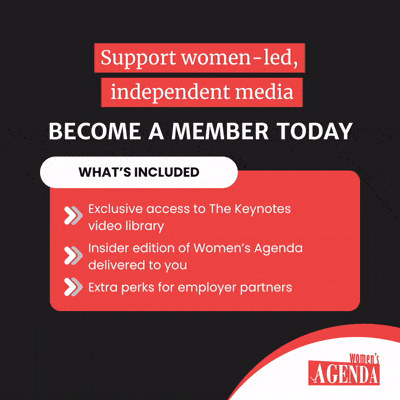Several of Australia’s most prominent business CEOs have spoken up and against sexual harassment, collaborating on how to stamp it out across workplaces, and even courageously sharing their own experiences of trauma.
Speaking at a Diversity Council Australia (DCA) event as part of the organisation’s #IStandForRespect campaign,
leaders included, Vice President of Cisco Australia & New Zealand Ben Dawson, ING Australia’s CEO Melanie Evans, beverage company Lion’s CEO, Stuart Irvine and MAX Solutions’ Managing Director Deborah Homewood.
DCA CEO, Lisa Annese opened the discussion about how to create safe workplaces.
For Evans, the first step is simple: leaders need to go beyond lip service about the issue.
“My team members expect me to be taking action – not just talking about it or doing symbolic things, but actually trying to have impact,” she said.
One piece of advice she offered was to call out inappropriate behaviour when it occurs.
“We need to call it out ourselves,” she says.
“I see this behaviour when I am out and about. If we see it, there is nothing more important than stepping into the space and letting other people know what we think is disrespectful and unacceptable and what is sexual harassment.”
Evans added that for real change to occur, sexual harassment needs to be addressed both inside and outside the workplace.
“[Standing against sexual harassment] cannot be left to a couple of hundred CEOs,” she says. “We need to be activating everyone we can in our organisation to step up and try to move this forward. And not just in the workplace but in the community.”
More than 220 CEOs from Australia’s top companies across a number of sectors have signed DCA’s #IStandForRespect pledge.
DCA’s CEO Lisa Annese, said she started the #IStandForRespect campaign when she “…noticed that in the national conversation being had on sexual harassment – triggered by events in Canberra and highlighted by the women’s March for Justice – the main voices in the conversation were from journalists, activists, politicians and social commentators.”
“Yet I knew from working with so many of our member organisations, that many workplaces had worked hard over the years to create an environment of respect, and leaders of those organisations could add a valuable voice to the conversation,” Annese says.
For Deborah Homewood, a personal experience of trauma helps to inform her own response as a leader.
“Every time I retell the story of my (sexual assault) trauma, the bit that upsets me the most is what happened afterwards,” she bravely revealed during the conversation.
Sharing that she had once been assaulted by a work colleague, Homewood said the subsequent impact it had on her when it was mishandled by her employer at the time was devastating.
“How I was made to feel, that palpable fear of losing my job, of not being able to support my daughter,” she says.
“I decided if I was going to be in leadership, I would make a difference in this space, this will be important to me. This is why I came out to speak about it and it has absolutely influenced my leadership on harassment and people’s voice in diversity. Every day.”
Homewood was also clear that the way we respond to sexual harassment has a bigger impact than a single workplace.
“People who work with us may go and work somewhere else, and they may take this behaviour in the way they have been treated in some things they have learned to another workplace,” she said.
“So as leaders of businesses we are responsible for, it is more important than just the organisations we work for.”
“It can make a difference and give voice to people who we never meet or are on our payroll and this is around all matters of respect including talk around whether it be homophobia or racism or anything we may talk about where there is no respect and harassment.”
Ben Dawson shares this sentiment, suggesting that “when you do see [disrespect] you have to act. It’s no good listening and not taking action.”
“We should use our platform to influence this issue outside,” he added. “This is not just a moral issue, it’s a business imperative. It’s not only a good thing for business. It’s a good thing for people.”
Stuart Irvine believes that leaders can make a big difference by addressing sexual harassment themselves.
“I would say to other CEOs, don’t forget the power that you have in having those conversations with people,” he said.
“I cannot recommend highly enough that the CEO has to do the work themselves. People know that it’s really serious, and we really mean it. And so it has to be personal.”
You can watch a recording of the event here, by becoming a member of the Diversity Council Australia.
If you or someone you know needs help or advice, call 1800 RESPECT (1800 737 732) or visit 1800RESPECT.org.au. If you need help immediately, please call 000.


